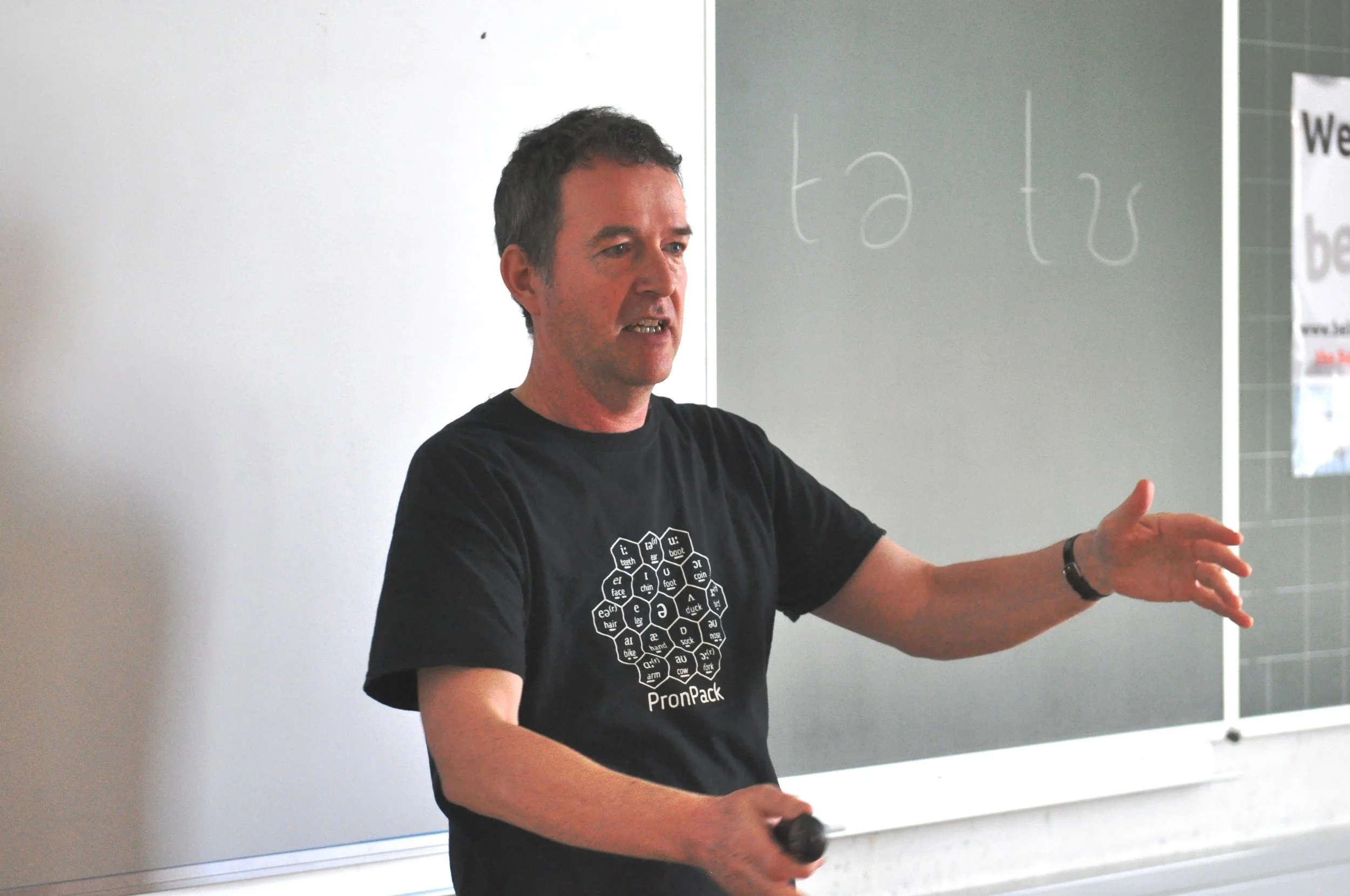If you regularly listen to this podcast, the chances are you listen because you want to be a better teacher. But what is the best way to become a better teacher? Is it attending training? Is it being observed by your boss? Is it watching your peers teach? In a special end of year double length episode, Professor Thomas Guskey, author of Evaluating Professional Development talks to us about the best way to help teachers learn and the evidence for workshops, peer observations and what the best teachers do that the rest of us don’t.
Creating Creativity in Language Teaching (with Alan Maley)
“You can’t use up creativity. The more you use, the more you have.” Maya Angelou. But how to get started? We speak with Professor Alan Maley, author of Creativity and English Language Teaching, about how constraints can prompt creativity in teachers and what teachers can do to bring in their lives, interests and personalities to make the classrooms more creative.
Replacing Texts With Pictures (with Mark Hancock)
Texts are a starting point for many lessons. But what about using a text with no words? Mark Hancock (author of Pronunciation Games, English Pronunciation in Use, Pron Pack and Pen Pictures) tells us about basing lessons around pictures and using these to generate stories, descriptions, language needs and much more.
Building the Perfect Coursebook (with Professor Brian Tomlinson)
Teaching Grammar Lexically (with Hugh Dellar)
Building Autonomous Teachers (With Ian McGrath)
Ian McGrath, author of Learner Autonomy, Teacher Autonomy: Future Directions talks to us about teacher autonomy. How can teacher education help make teachers more autonomous? How do observations from supervisors and student testing encroach on teachers’ decision making? And how can observations and testing be redesigned to give teachers the freedom to teach students the way they need to be taught?
Teacher Supervision Without Observation (with Mario Rinvolucri)
Teaching Vocabulary to Children (with Annamaria Pinter)
Is It Useful To Teach Grammar? (with Nina Spada)
Does Professional Development Make a Difference? (With Thomas Guskey)
Stages and Stories in Second Language Acquisition (with Stephen Krashen)
What stages do students pass through in learning a language? Stephen Krashen, Professor Emeritus at the University of California, tells us about the conduit hypothesis. We discuss the role of reading, the growing importance of listening and how to encourage students to read and acquire more through comprehensible input.



















